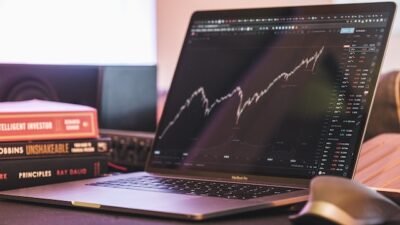When it comes to the stock market, there are two main approaches that investors can take: trading and investing. Both trading and investing in the stock market have their own advantages and disadvantages, and it ultimately depends on individual preferences, goals, risk appetite, and time horizon. Trading vs Investing Stocks Comparison
Comparing Trading vs Investing Stocks
For those looking for short-term gains and actively managing their portfolio, trading may be the preferred option. Trading in the stock market involves buying and selling stocks frequently with the aim of making quick profits from short-term price fluctuations.
On the other hand, investing in the stock market is a long-term strategy that focuses on buying and holding stocks for an extended period of time with the expectation of earning returns over time through dividend payments and potential capital appreciation.
Trading in the stock market can be exciting and potentially profitable, as traders aim to take advantage of short-term price movements. However, it requires a deep understanding of market trends, technical analysis tools, and the ability to make quick decisions.
Investing, on the other hand, is a more traditional approach that requires patience and a long-term perspective. Investors who choose to invest in the stock market are typically looking for long-term growth and are more focused on the fundamentals of a company, such as its financial health, management team, competitive position, and growth prospects.
While both trading and investing can be profitable in the stock market, they have differing levels of risk involved. Trading often involves higher levels of risk due to the frequent buying and selling of stocks, which can result in substantial losses if market conditions are unfavorable or if trades are executed poorly.
Investing, on the other hand, carries a lower level of risk as it is based on the long-term performance and stability of companies. In summary, the choice between trading and investing in the stock market depends on an individual’s goals, risk tolerance, time horizon, and level of involvement
Pros and Cons of Trading in the Stock Market
Trading in the stock market offers several advantages. Firstly, it provides the opportunity for potentially higher returns in a shorter period of time. This is because traders take advantage of short-term price fluctuations and can quickly buy and sell stocks to capitalize on these movements. Additionally, trading allows for greater flexibility and control over investment decisions.
However, trading in the stock market also comes with its own set of challenges and risks. The main disadvantage of trading is the higher level of risk involved. The constant buying and selling of stocks can lead to higher transaction costs, as well as potential losses if trades are not executed properly.
Furthermore, trading requires a significant amount of time commitment and active monitoring of market conditions. This constant monitoring can be stressful and time-consuming for some individuals.
Benefits and Risks of Investing in the Stock Market
Investing in the stock market offers several benefits. Firstly, it provides the opportunity for long-term growth and wealth accumulation. Over time, the stock market has historically delivered higher returns compared to other investment options such as bonds or savings accounts. Additionally, investing allows for a more passive approach to wealth building as investors can hold onto their investments and let them grow over time.
However, investing in the stock market also comes with its own set of risks. The main risk of investing is market volatility. Market conditions can fluctuate, causing the value of stocks to rise and fall. This market volatility can result in temporary losses or periods of stagnant growth.
Additionally, investing requires patience and the ability to withstand short-term market fluctuations without making impulsive decisions. Overall, the choice between trading and investing in the stock market depends on an individual’s goals, risk tolerance, time horizon, and level of involvement.
Choosing the Right Approach: Trading or Investing
Choosing the right approach, whether it’s trading or investing in the stock market, depends on individual preferences and financial goals. While trading offers the potential for quick profits and more active involvement, it also requires a higher level of expertise and time commitment.
Investing, on the other hand, allows for a more passive approach and can be suitable for individuals with a long-term perspective. Ultimately, the decision between trading and investing in the stock market should be based on an individual’s risk tolerance, time commitment, financial goals, and level of expertise in the market.
Investing in the stock market requires a long-term perspective and a willingness to withstand short-term fluctuations. Trading in the stock market, on the other hand, involves more active buying and selling of stocks to take advantage of short-term price movements. Both approaches have their merits and risks.
Conclusion : Trading vs Investing Stocks
In conclusion, both trading and investing in the stock market offer their own benefits and risks. Choosing between the two ultimately depends on an individual’s goals, risk tolerance, time commitment, and level of expertise in the market. Both trading and investing in the stock market can be profitable, but they require different approaches.
It is important for individuals to carefully consider their personal circumstances and financial goals before deciding whether to trade or invest in the stock market. In general, trading in the stock market is more suitable for individuals who are willing to actively monitor and adjust their investments on a regular basis. On the other hand, investing in the stock market is more appropriate for those with a long-term perspective and a willingness to withstand short-term fluctuations.








